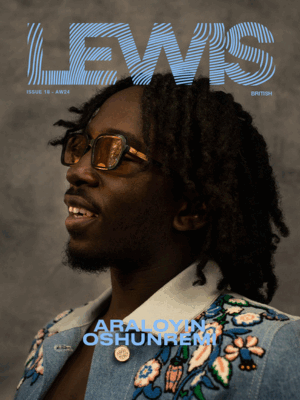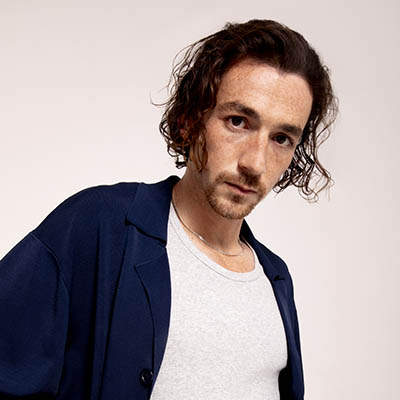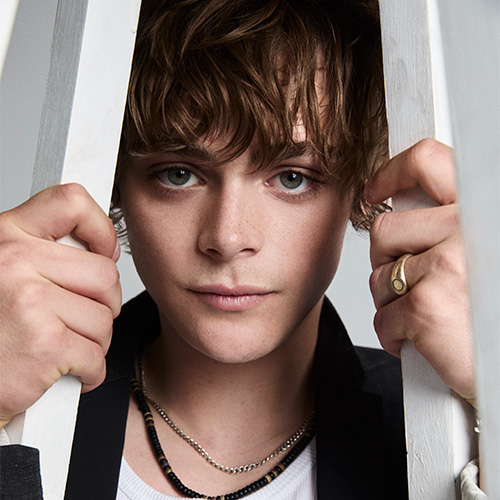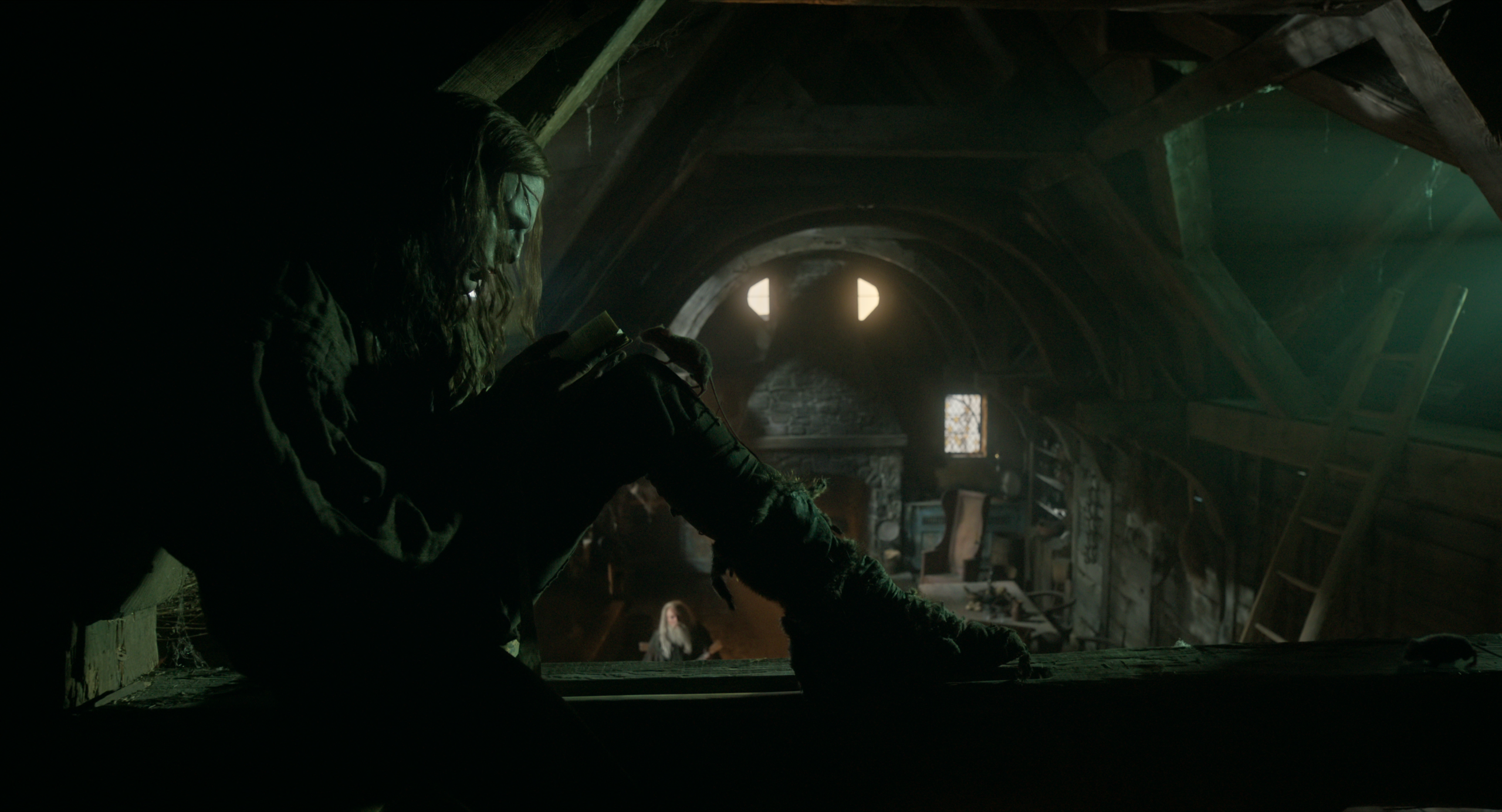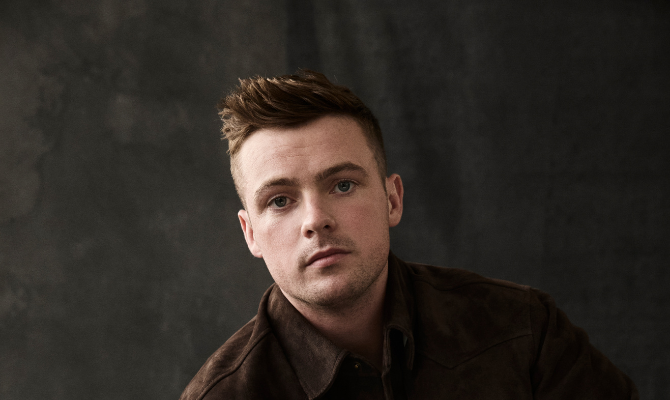From gritty modern dramas to sweeping period epics, Conor MacNeill has proven himself one of the most versatile actors on screen today. In Outlander: Blood of My Blood, the Northern Irish star steps into the shoes of a young Ned Gowan, decades before the wry, sharp-tongued lawyer fans first met in the original series. Speaking exclusively to LEWIS Magazine, MacNeill reveals how music, history, and a touch of fire helped shape his portrayal of the 34-year-old legal mind navigating Scotland’s turbulent Jacobite era — and why this version of Ned is still learning the wisdom he’ll one day be known for.

Photography : Jonny Storey
Fans know Ned as the wry, quick‑witted legal eagle of Outlander. What personal research or historical rabbit‑holes did you dive down to craft a believable 24‑year‑old version of him in Blood of My Blood, and where did you choose to diverge from book‑canon to keep the character surprising?
Firstly, I obviously watched Bill Patterson’s brilliant version of the character in Outlander, and I listened to Diana’s audio books to a get a sense of the world and who this man was. For me, I always go to music when getting into a character and that can be a mixture of music from the world/period. But also what I think might tonally register with whatever character or story that I am working on. I listened to the Irish band Lankum, a collection of Scottish music from the 18th century called For Ever Fortune and a lot of Albinoni pieces. I could really imagine Ned sat necking a port and listening to an Albinoni sonata to get his head showered from the stress of the McKenzie siblings. Ha..
And I am not sure I would say divergence from what was already created, but I certainly wanted to bring more fire to the character, I really wanted the audience to see that this version of Ned is the man learning to become the wise old sage that they know and love. In Blood of my Blood there are moments of Panic and uncertainty for Ned, which he styles out with grace of course. But we really get to see him learning in motion. It was so useful having the destination of what Bill did, we know where this character ends up, so my job is to portray the steps he took to get there.
The prequel’s Scotland arc sits on the cusp of the 1715 Jacobite Rising. How does that turbulent legal landscape shape Ned’s moral compass, and did you discover any 18th‑century legal quirks that felt strangely relevant to 2025?
It has a huge influence on his moral compass for sure, Ned is constantly checking the temperature of the political landscape at any given time. He doesn’t seem to have a strong stance for Jacobite or the crown, his primary concern is to maintain things in the favor of the McKenzie clan to ensure their longevity. Particularly in this heated time, he shifts with what he thinks will keep them safe and in good standing. He is like an uncle to Ellen, but his emotional connection to her or to any of the McKenzie siblings for that matter, never seems to stand in the way of his decision making relating to the future of the Clan as a whole.
Your storyline never jumps to WWI England, yet the series constantly cross‑cuts to Claire’s parents. How does acting inside a split‑era show affect choices you make in scenes that will sit next to footage from a completely different century?
Oh wow, I must be honest I have never thought about this! As an actor my focus on any job is always very much on the scene at hand and what has preceded it in direct relation to my character. I rarely think about the edit, that’s the director and editors’ realm.
Switching from Kenny Kilbane’s laser‑fast dialogue to Ned’s measured legal rhetoric is quite a gear‑change. What did you carry over from portraying a modern banker, and what did you have to unlearn to speak in 18th‑century rhythms?
Yes, they are worlds apart from one another which was very much the reason that I jumped at the opportunity to play Ned. Interestingly the stakes of the company and the stakes of the clan dictate the future for both characters and the security of their role in both positions, is at the hands of their superiors. So, there is a small element of calculation and navigation that bleeds over from Kenny into Ned, but I think that is where it begins and ends.
There was no active unlearning on my part, but Kenny is a very emotional person, he can be front footed and jumps the gun a lot. He is like a child grabbing at the things he thinks might soothe him, and when he gets his way, he tends to make a mess of it. As where with Ned, he consumes, digests and then makes his move, he moves through the world playing a game of chess with a deft sleight of hand, never giving too much of his game away.
Blood of My Blood rolls out weekly from August 8. As the episodes air, you’ll also be wearing your producer hat back home. How do you balance the instant fan feedback cycle of a Starz release with the slower burn of nurturing new Irish stories at Blackthorn?
I don’t really know?! I suppose I have quite a regimented Diary. It’s mostly a case of taking things as they come, one step at a time. I am not online too much so I manage to avoid a lot of the noise around the show. I am currently filming for Season two and it’s all very much work as normal. And with Film and TV development it moves at varying paces, so you just go with the flow a lot of the time. Getting as much sleep as possible is probably the most important thing.
You and Jamie Dornan have now shared the screen in three TV dramas, two feature films, and a company letterhead. What have you learned about creative partnership from that long‑running collaboration, and where do you challenge each other most?
We have very similar tastes, and we are also incredibly honest with one another. Putting everything on the table and speaking your truth when it comes to the work, seems to bring out the best in both of us. If we don’t agree on a project or a script choice, which is rare, we generally hash it out until the answer becomes very clear. We are both very passionate about what we do, but our lives outside work holds precedence for us both. And I don’t know so much about challenging each other, we like things to be as an enjoyable experience as possible. When things with the company get difficult or overwhelming, we are very good at reminding the other why we are doing this and bringing it back down to the seed of what inspired us in the first place.
Audiences still talk about the physical stakes of The Ferryman and The Cripple of Inishmaan. When you step onto an 18th‑century set, do you consciously invoke theatre instincts—projection, stillness, live‑audience timing—or has screen work fully rewired your process?
Never consciously no, but I do think they both inform the other. The question of Theatre or Film comes up a lot for me. And both command the same style of prep in how you approach a character. The only difference is the delivery, on stage you’re hitting the back row and on screen the camera is doing all that work for you. I think 18th century sets and costumes do bring an element of theatricality to the screen for sure, but as a cast it feels like we are all working from a very naturalistic and real place.

Photography : Jonny Storey




